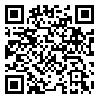Volume 17 - Supplement of 11th Annual Iranian Congress of Medical Ethics (Oral Presentation)
IJMEHM 2024, 17 - Supplement of 11th Annual Iranian Congress of Medical Ethics (Oral Presentation): 1-2 |
Back to browse issues page
Download citation:
BibTeX | RIS | EndNote | Medlars | ProCite | Reference Manager | RefWorks
Send citation to:



BibTeX | RIS | EndNote | Medlars | ProCite | Reference Manager | RefWorks
Send citation to:
Sadeghi Avval Shahr H. Reflection in Medical Education: A Strategy for Enhancing Professional Development. IJMEHM 2024; 17 (S1) :1-2
URL: http://ijme.tums.ac.ir/article-1-6859-en.html
URL: http://ijme.tums.ac.ir/article-1-6859-en.html
Department of Midwifery and Reproductive Health, Faculty of Nursing and Midwifery, Iran University of Medical Sciences, Tehran, Iran
Abstract: (203 Views)
Effective medical education requires the cultivation of essential professional attributes, including ethical reasoning, communication skills, empathy, and professionalism. Traditional teaching methods often fall short in adequately developing these crucial aspects. Reflection-based learning, with its emphasis on self-analysis and critical thinking, presents a promising pedagogical approach to address these limitations. This review study examined the literature on reflection in medical education. A comprehensive search of the Web of Science, PubMed, Scopus, and Google Scholar databases was conducted using keywords such as "education," "reflection," "professionalism," "professional behavior," and "medical students" from 2010 to 2024. Eighteen relevant articles were selected and analyzed for their type, focus, and conceptual implications. Different approaches to integrating reflection into professionalism education were then categorized and analyzed. The reviewed literature highlights a multifaceted approach to incorporating reflection into medical education. Key strategies include contextual reflection, linking reflections to specific clinical experiences; utilizing structured frameworks such as the Gibbs Cycle to guide the reflective process; fostering peer-to-peer learning through discussions, peer feedback, and mentorship; and seamlessly integrating reflection as an ongoing and assessed component of the medical curriculum. Findings suggest that an educational approach emphasizing practical application, experiential learning, and structured reflection opportunities can significantly enhance students' understanding of professional behavior. This approach is anticipated to lead to improvements in communication skills, ethical reasoning, empathy, and self-awareness, ultimately contributing to better patient care and a stronger medical workforce. Reflection-based learning offers a valuable strategy for developing professional competence in medical education. This approach necessitates the active integration of reflection into clinical learning activities, utilizing structured frameworks, and providing ample opportunities for peer and faculty support. Future research should rigorously investigate the impact of specific reflective activities on tangible improvements in clinical skills and behaviors.
Type of Study: Ethics Congress |
Subject:
Congress of Ethics
Received: 2025/02/2 | Accepted: 2024/12/22 | Published: 2024/12/22
Received: 2025/02/2 | Accepted: 2024/12/22 | Published: 2024/12/22
Send email to the article author
| Rights and permissions | |
 |
This work is licensed under a Creative Commons Attribution-NonCommercial 4.0 International License. |





